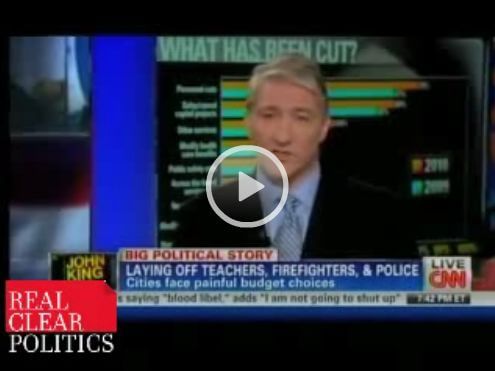[Guest post by Aaron Worthing; if you have tips, please send them here.]
Mind you, he is not fool enough to call it “smart regulation” because it sounds too much like “smart diplomacy. But that is what it is and he all but calls it that. From his op-ed today:
From child labor laws to the Clean Air Act to our most recent strictures against hidden fees and penalties by credit card companies, we have, from time to time, embraced common sense rules of the road that strengthen our country without unduly interfering with the pursuit of progress and the growth of our economy.
Sometimes, those rules have gotten out of balance, placing unreasonable burdens on business—burdens that have stifled innovation and have had a chilling effect on growth and jobs. At other times, we have failed to meet our basic responsibility to protect the public interest, leading to disastrous consequences. Such was the case in the run-up to the financial crisis from which we are still recovering. There, a lack of proper oversight and transparency nearly led to the collapse of the financial markets and a full-scale Depression.
Over the past two years, the goal of my administration has been to strike the right balance. And today, I am signing an executive order that makes clear that this is the operating principle of our government.
This order requires that federal agencies ensure that regulations protect our safety, health and environment while promoting economic growth. And it orders a government-wide review of the rules already on the books to remove outdated regulations that stifle job creation and make our economy less competitive. It’s a review that will help bring order to regulations that have become a patchwork of overlapping rules, the result of tinkering by administrations and legislators of both parties and the influence of special interests in Washington over decades.
Yeah, that sounds good in theory. But bear in mind, this is the same administration that advocated an interpretation of the law that declared pretty much everyone to be a creditor, requiring everyone—employees, contractors, corporations, etc.—to form plans for catching identity theft. But hey, maybe he just didn’t know what was happening. Maybe he is just a really sh-tty administrator. But even when he discusses what he envisions with simple examples, a chill runs down my back:
Where necessary, we won’t shy away from addressing obvious gaps: new safety rules for infant formula; procedures to stop preventable infections in hospitals; efforts to target chronic violators of workplace safety laws.
That all sounds nice, but particularly in the bolded example I am creeped out. I work for a health care company. You don’t think we work really hard to prevent the spread of infection? Of course we do. Now the main reason we do is is because our company is filled with people who really are dedicated to improving the health of our patients. This is not just a job to them, but a profession. But even if you are skeptical of moral influence, we have another reason for doing so: because if we don’t then we can be held liable. So federal regulations requiring certain procedures to be followed will be at best a waste of time—every company that wants to avoid an avalanche of lawsuits is already doing that—and at worst will introduce inappropriate rigidity into the system. All of which seems to contradict this later assurance:
As the executive order I am signing makes clear, we are seeking more affordable, less intrusive means to achieve the same ends—giving careful consideration to benefits and costs.
Except that coming up with specific procedures, rather than a simple liability rule, is more intrusive, and is unlikely to further that end.
Oh, and he can’t possibly get through it all without an attempt to smother criticism with the label of incivility:
Despite a lot of heated rhetoric, our efforts over the past two years to modernize our regulations have led to smarter—and in some cases tougher—rules to protect our health, safety and environment.
(emphasis added) Oh, and notice he does use a phrase that is very close to “smart regulation”—“smarter… rules.” Of course there is nothing wrong with a regulatory regime that is actually smarter. The problem is that I have zero confidence that this will be the result.
But hey, Mr. President, why don’t you surprise me?
Btw, I don’t know who put this in, but at the bottom someone actually thought there were people stupid enough not to know who he was, so someone added:
Mr. Obama is president of the United States.
Thanks for the info, guys! But then again considering the state of knowledge in this country, we might be unsure if anyone, politicians included, know that.
Update: You can read the executive order, here. This is a parody, right? Maybe the guys at the Onion?
[Posted and authored by Aaron Worthing.]



